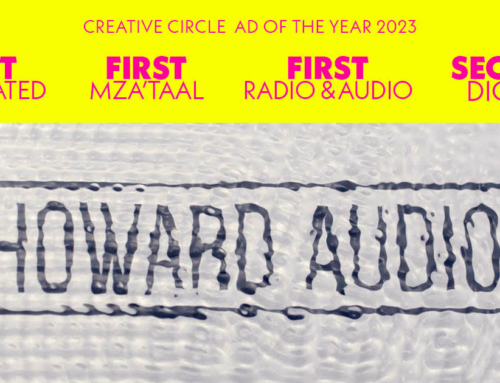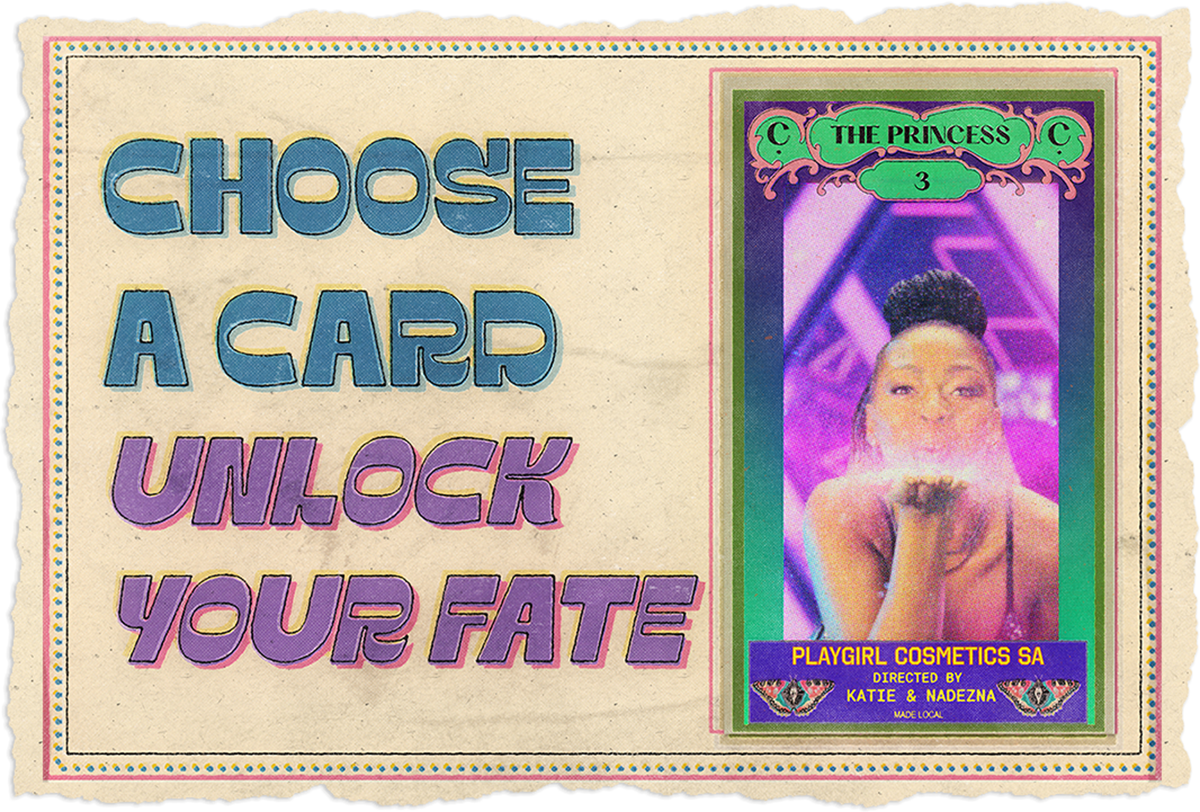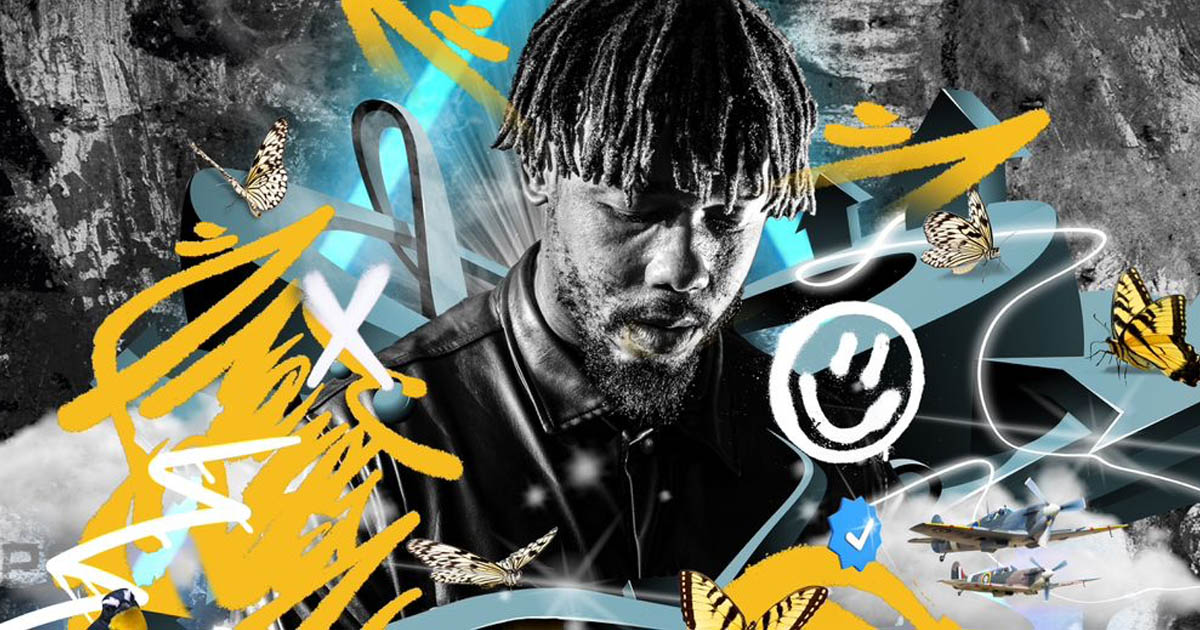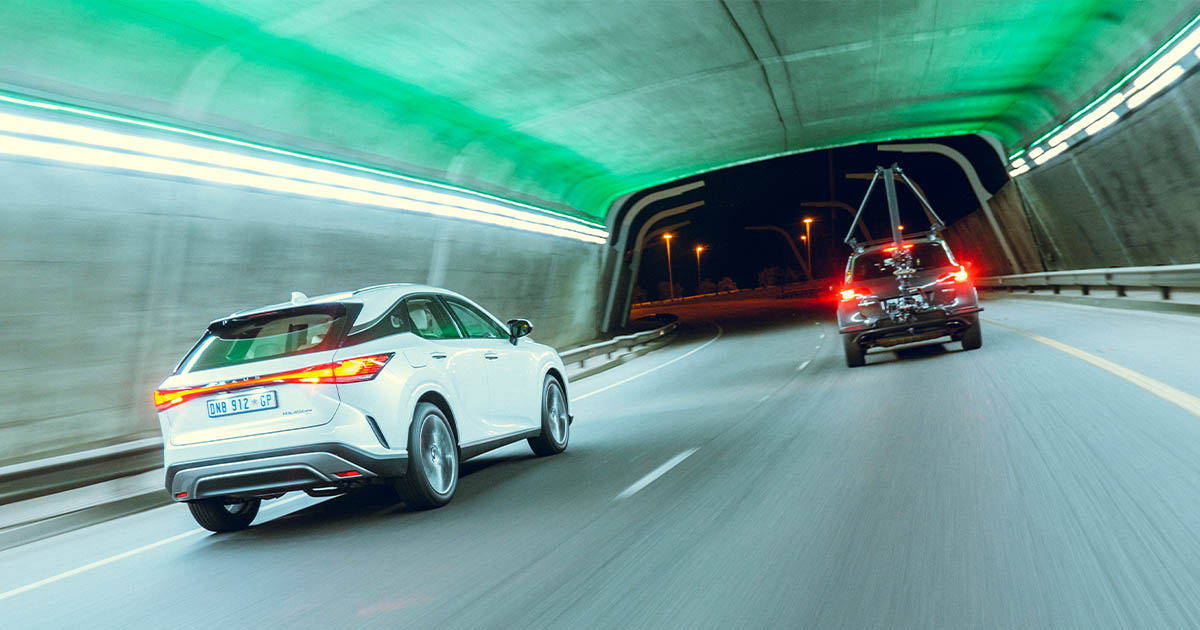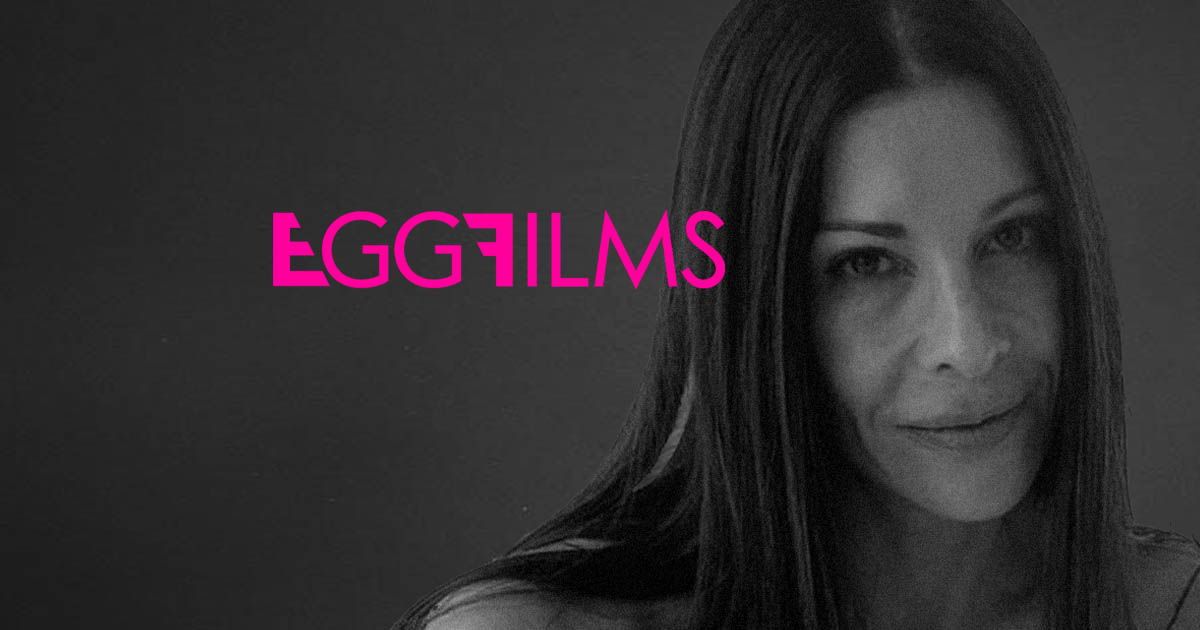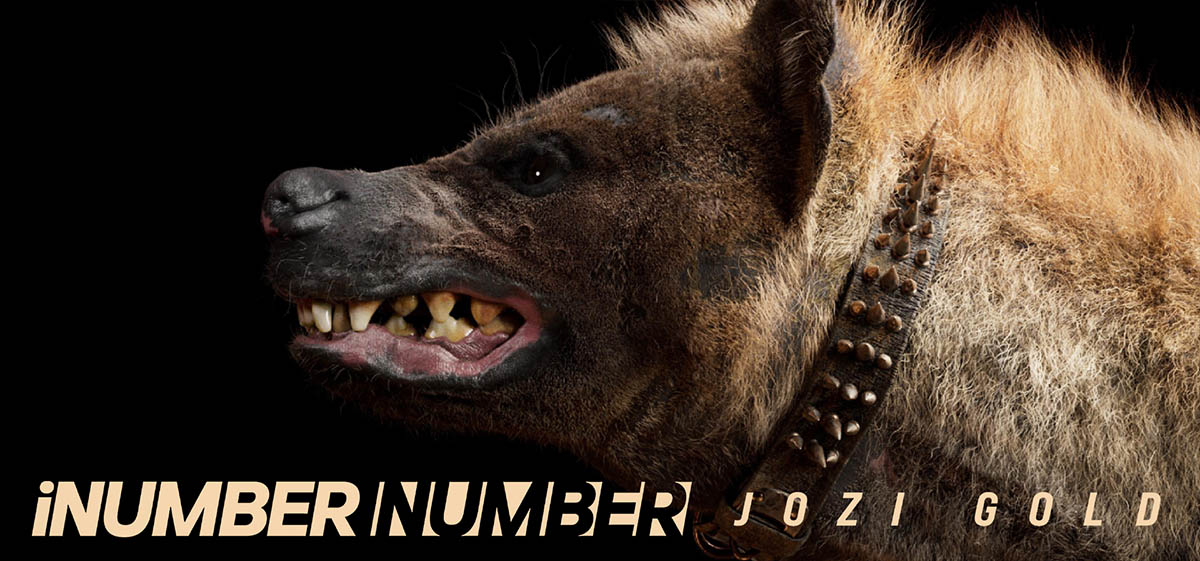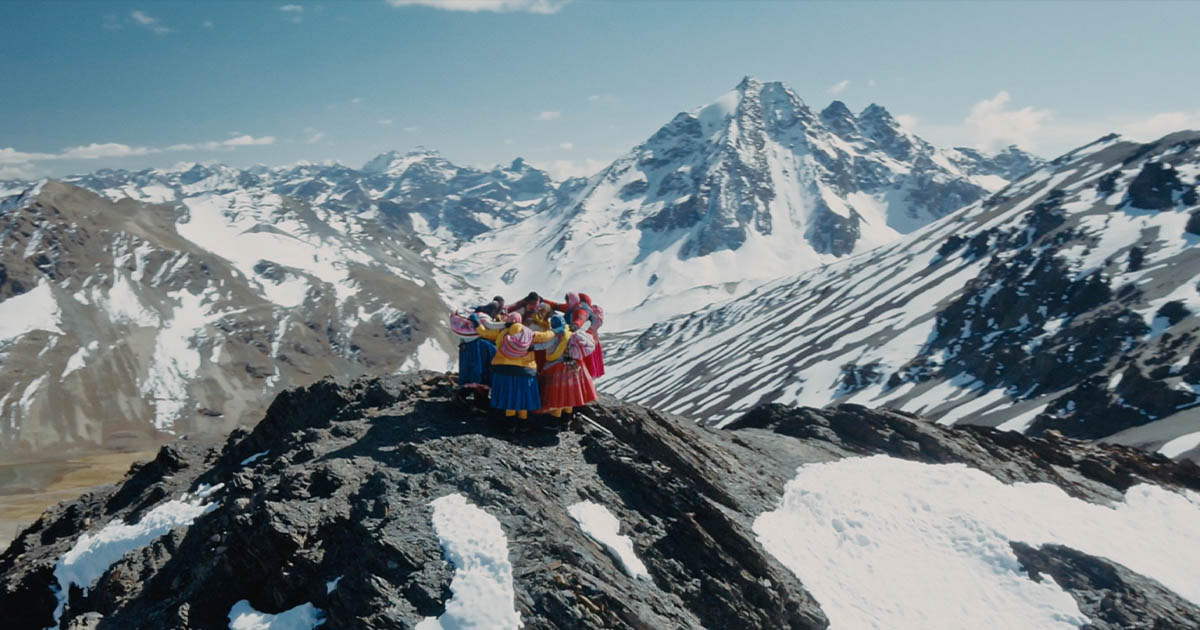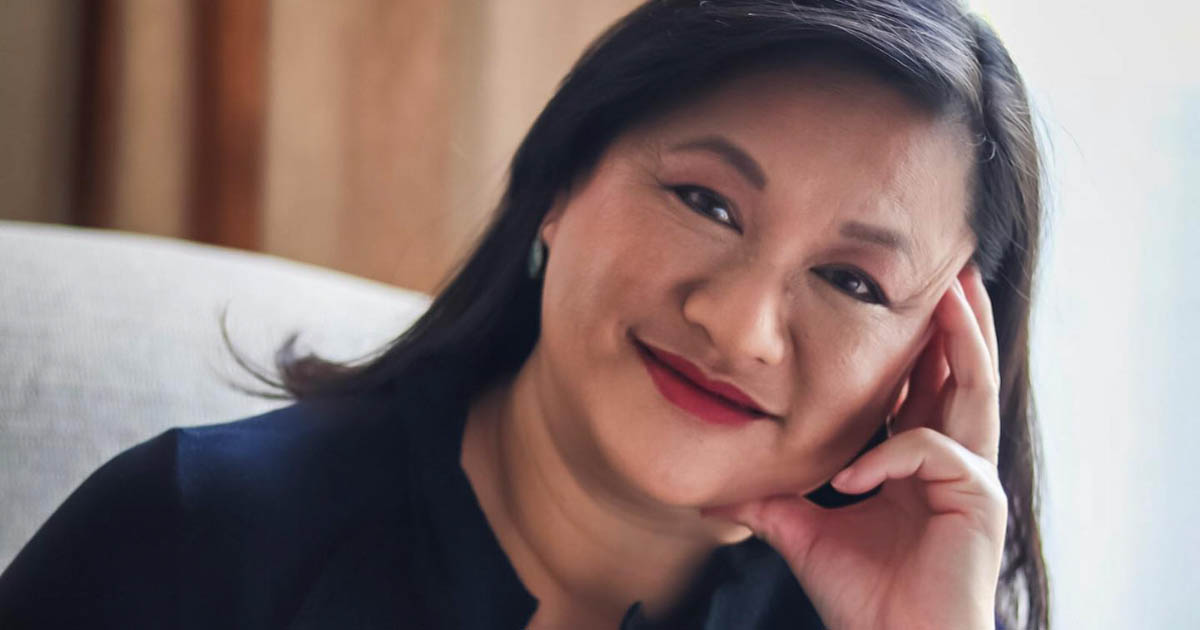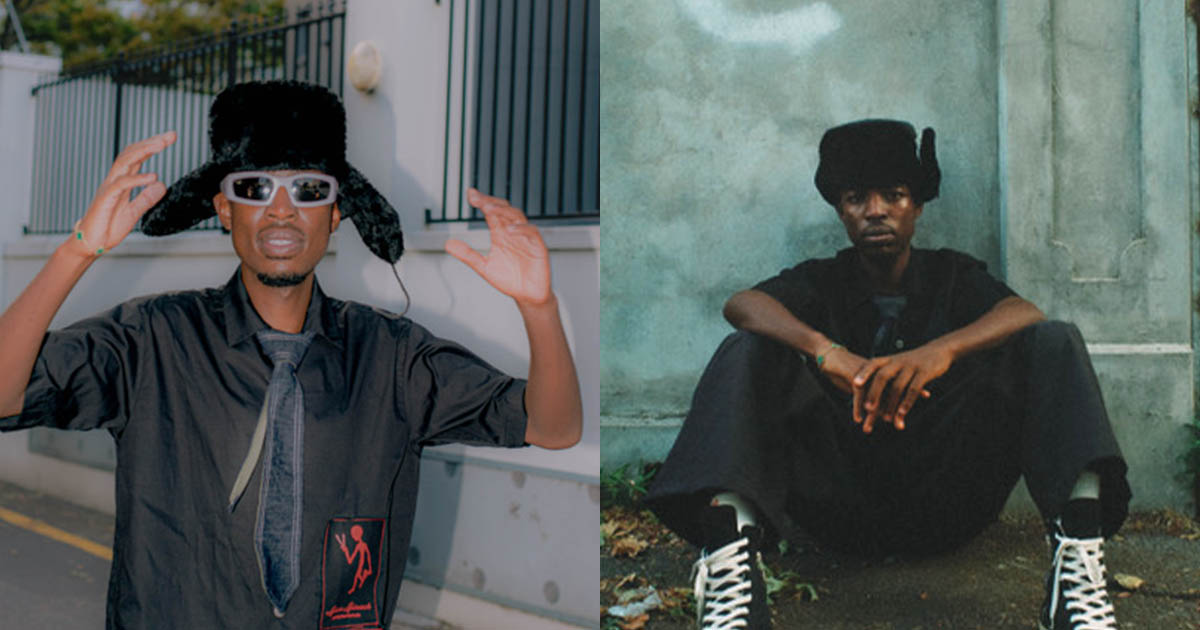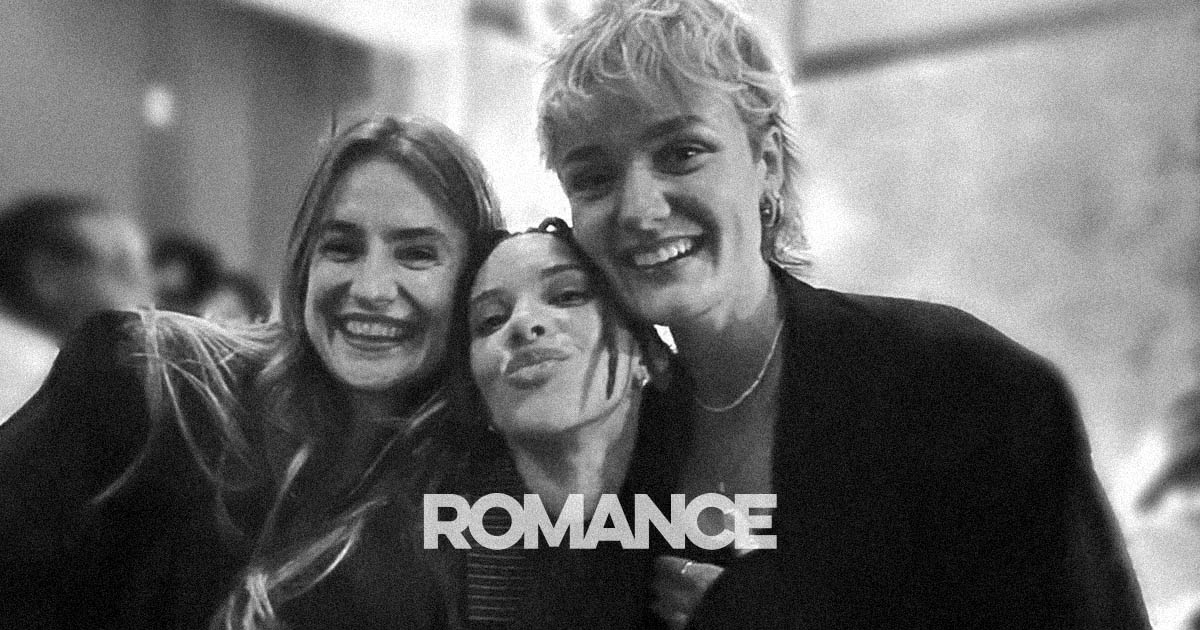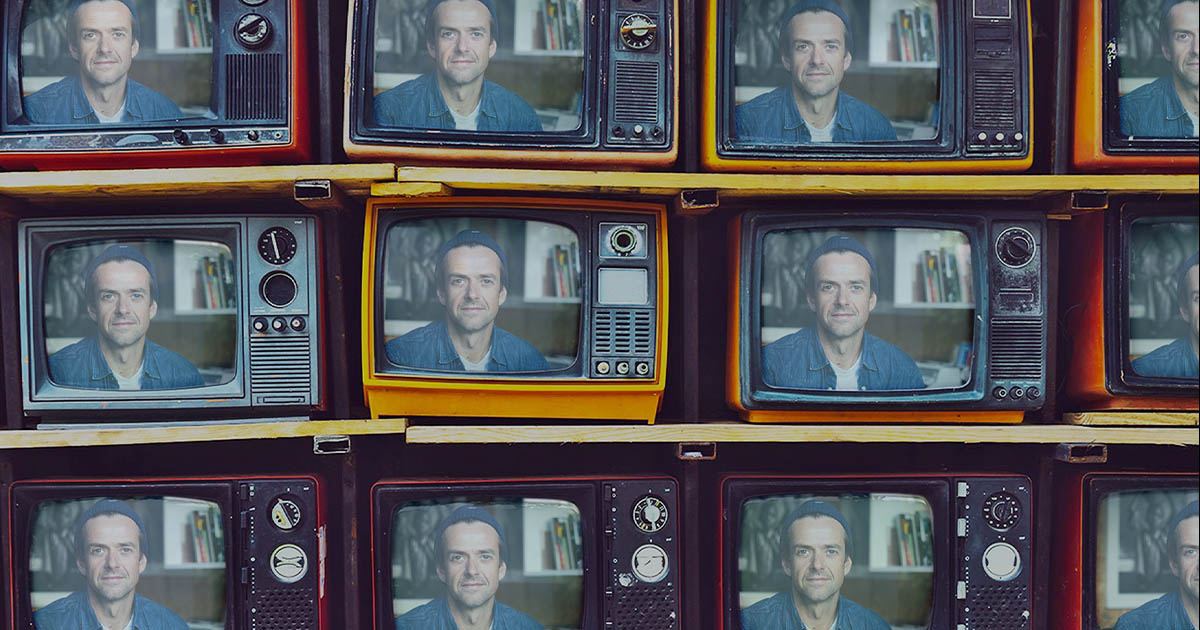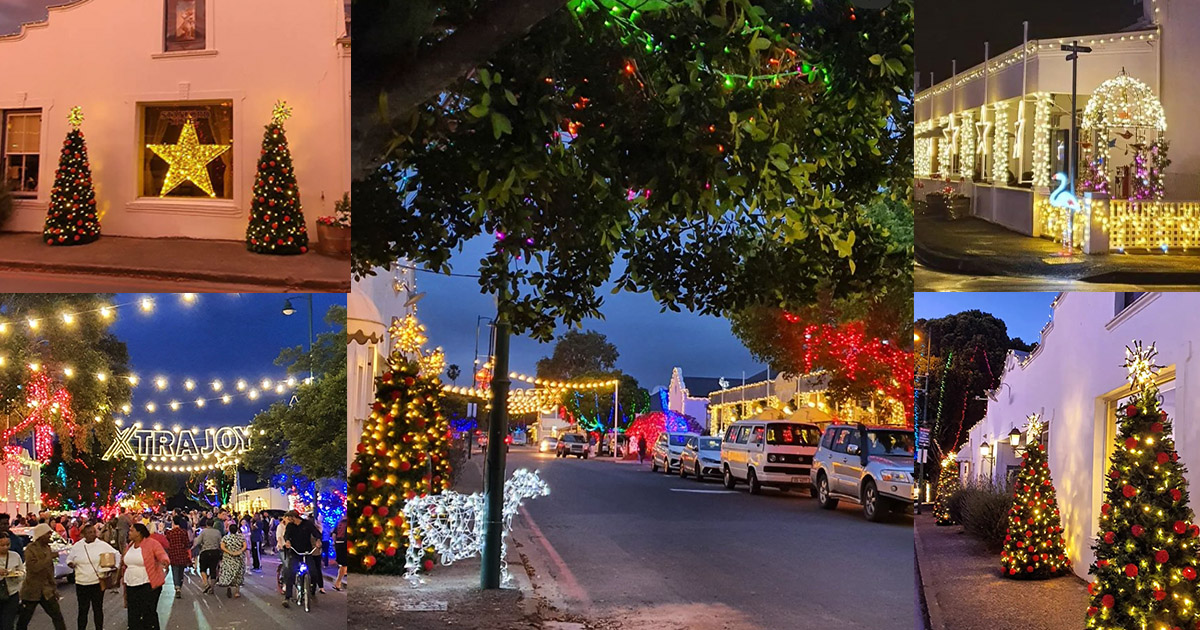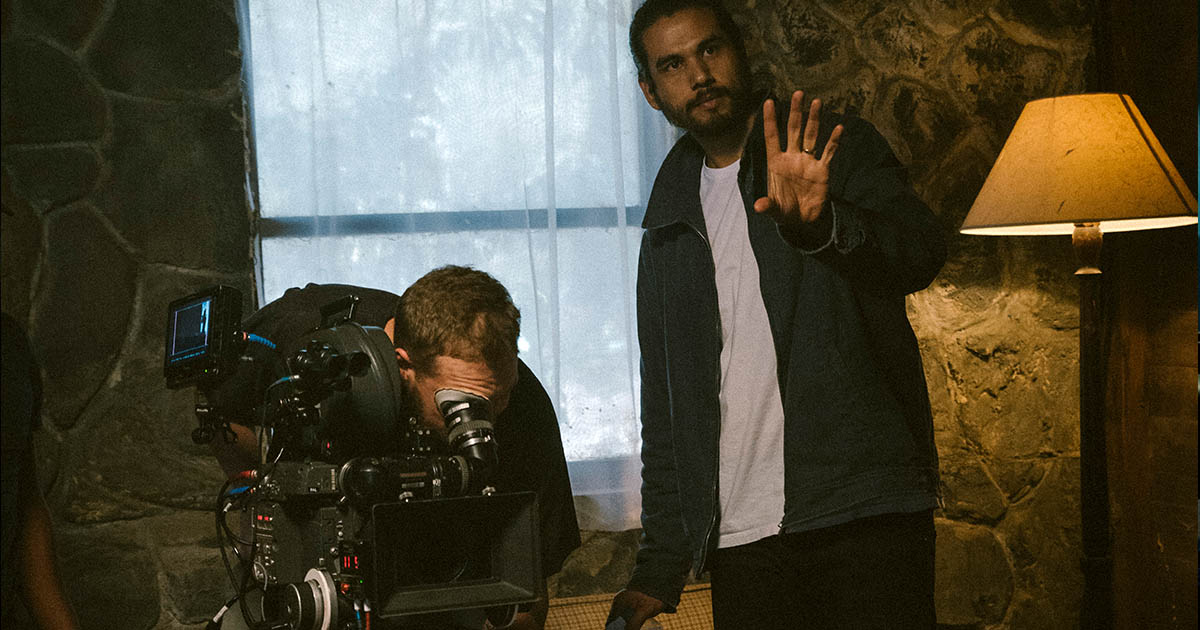
The brains behind ‘Basement’ sit down to talk inspiration, the process, and shooting on film
Released by Patriot Films
Patriot Films Director, Aadil Dhalech, sits down with DP Fabian Vettiger and Ex Olympic musician and sound engineer Nic van Reenen to discuss what went into their latest short film entitled ‘Basement’. The trio of creators touch on the challenges and excitement of shooting on 35mm, their creative processes and explore the film’s dark themes.
‘Basement’ directed by Aadil Dhalech
Director Aadil Dhalech in conversation with DP Fabian Vettiger and Ex Olympic musician and sound engineer Nic van Reenen
Aadil: So I suppose we should talk about how we made this film. Where did this song come from?
Nic: The whole EP is called “Hang Ups”, so it’s a meditation on the things we get stuck on. This song in particular is about romantic ideation and projection and how that can often be a toxic quality to bring into a relationship. What’s interesting is that prior to Aadil’s interpretation this song was actually written from a lovesick troubadour’s perspective, not from a creep’s…
Aadil: Love makes you a creep man. I was just projecting.
Nic: *Laughs* But it was great how you re-contextualised that. It really added something. You know, being almost the internal monologue of the antagonist of the video, as opposed to the protagonist. Normally in these songs, movies, or books, the feeling is how could she not want him? What’s wrong with her? And I think flipping the script like this really makes us question the way we engage with that narrative. That’s what really drew me to Aadil’s story.
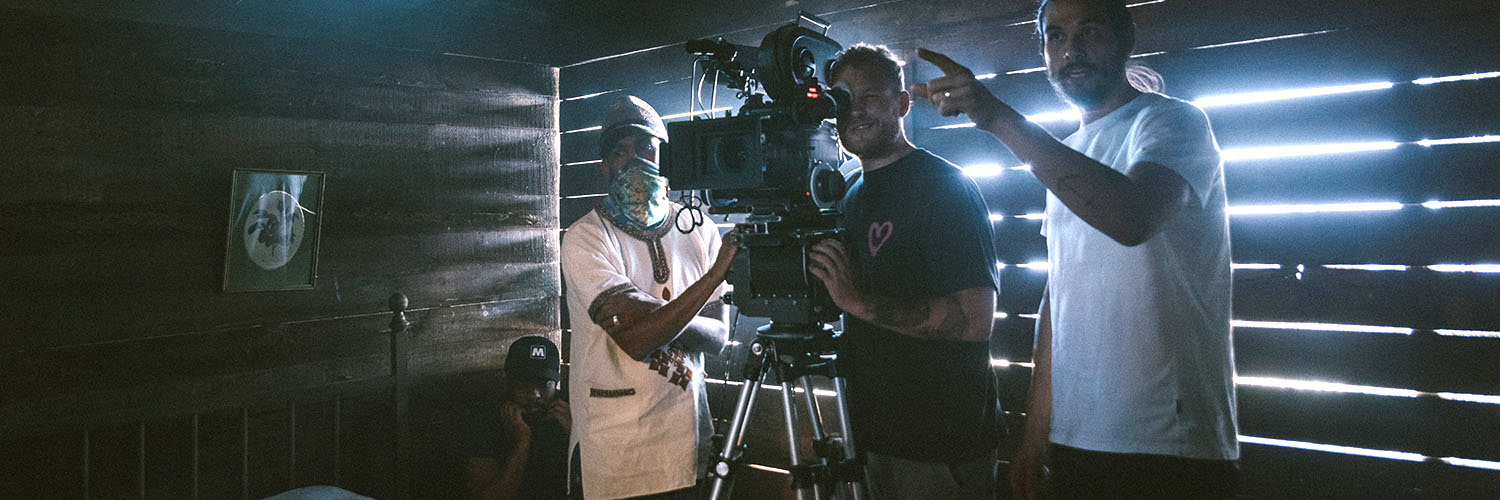
Director Aadil Dhalech with DP Fabian Vettiger on set (Photographer: Paris Brummer)
Fabian: Let’s talk about that story.
Aadil: I’d had this idea percolating that dealt with obsession and an unhealthy relationship. It was about this couple who look like they’re having a fight, but it turns out that the woman was actually a captive. It was a metaphor for relationships that a lot of the women in my life have been in. When I heard ‘Basement’ it evoked similar feelings, so it felt like the right fit for that story.
Nic: I suppose it is about a kind of obsession and control. In writing the song, I wasn’t really interrogating the dangerous side of obsession, which is where the music video adds this extra layer to it.
Aadil: Yeah which is a metaphor for emotional manipulation. He’s desperate to keep her.
Nic: People who are evil often think they’re good. They tend to think they’re a victim of circumstance to some degree.
Aadil: Right.
Nic: He’s trying to contain her, trying to box her in physically into a room, into a confined space. Like a drug, but whatever the drug is, it’s another way to control her, break her down.
Aadil: Yeah I wanted to explore this idea of how the woman represents nature, Gaia, the Mother, and how so much of who man is linked to destruction of that. We see that all around us. Even in relationships, there is a dynamic where masculinity can challenge, or, at worst, destroy the feminine. I wanted to explore that, but use film genre tropes as a vessel.
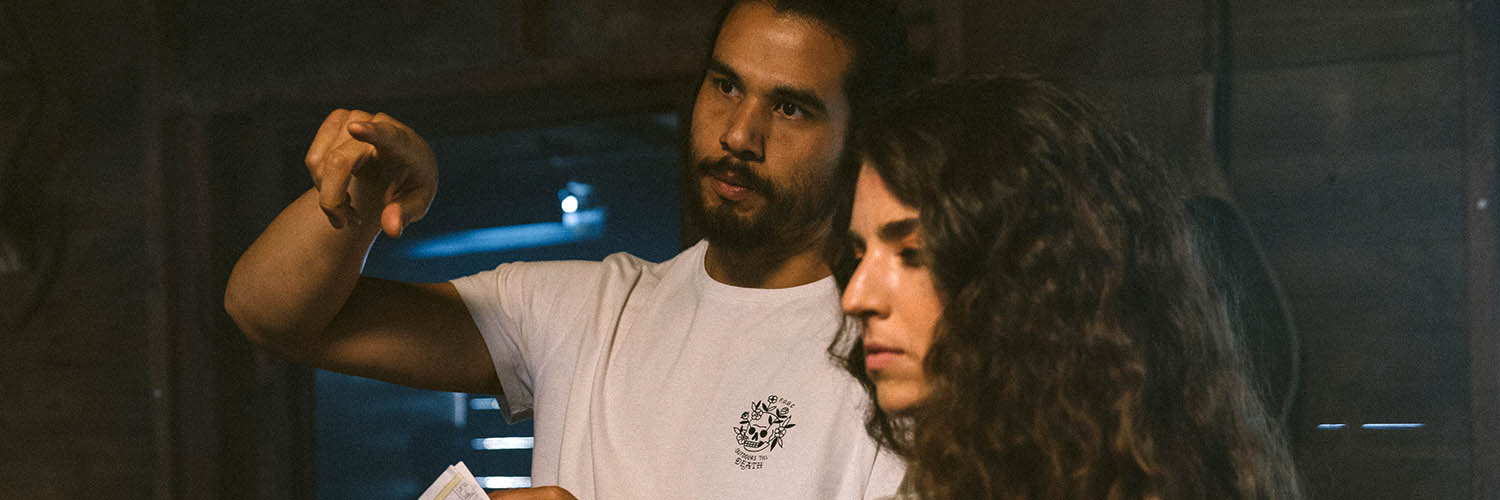
On set – Aadil and lead actress, Francesca Varrie Michel (Photographer: Paris Brummer)
Fabian: I’m interested in how you write a song like this. Initially you think it’s happy, but then it has that darkness. Do you think about that before, or is it more organic?
Nic: I think I sort of default to a sort of crooner style thing. And then once you’ve got the song down and you’ve got the way you want the vocals to fit and a general mood, then you re-engineer it, add subtlety and you change it. I was thinking about R&B, like a love song, but then it does have this sort of unsettling quality to it.
Aadil: I think that off-ness sparked a lot, even the location. It seemed generally pretty, like the perfect romantic getaway, but soon enough it’s revealed that something isn’t right. With our casting I wanted him to look and feel like everything you would want, but there’s maybe something else going on underneath. That’s the kind of relationship this is a metaphor for: from the outside they always seem fine.
Nic: He’s just a regular seeming guy.
Aadil: Yes. So all of those things started to play into it – the lighting, the grade. It all looks beautiful but something’s not right. And our camera moves in a classical way but it’s also slightly off, and framed slightly off.
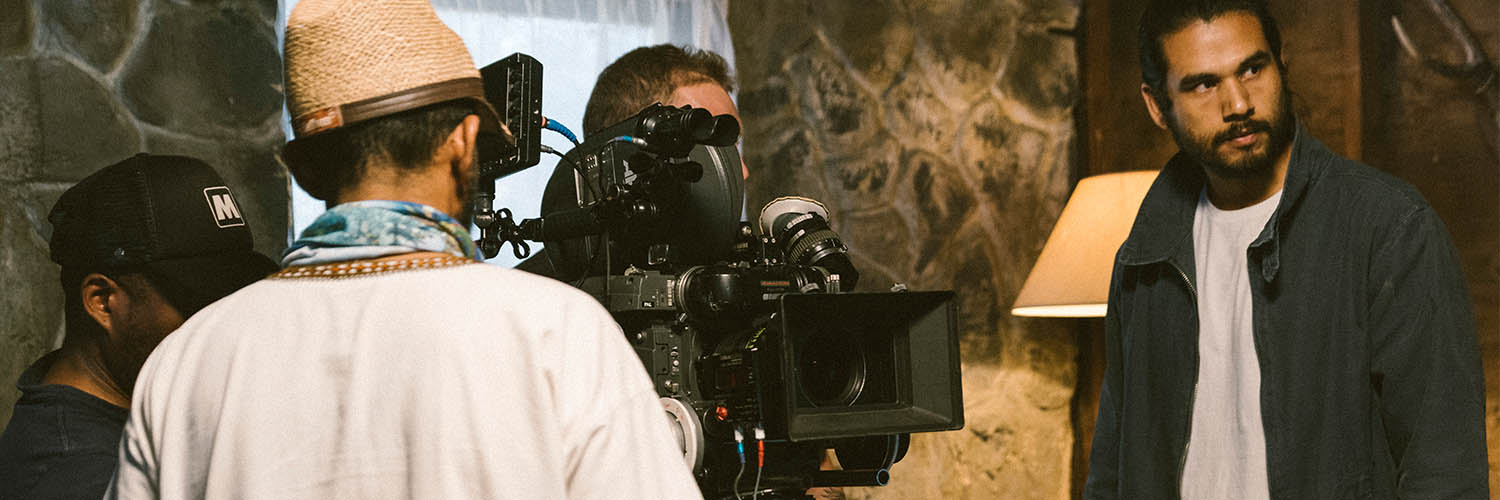
Behind the scenes on set of ‘Basement’ (Photographer: Paris Brummer)
Fabian: Can we talk about shooting this on film?
Aadil: Yes!
Fabian: When you first approached me I immediately thought of 35mm. It’s got an emotive, narrative, cinematic quality, so it felt like the right fit. I’d also been waiting for an opportunity like this for a very long time. You can argue that digital sensors today, and with a bit of help in the DI, can almost match identically the look of 35mm. But what you don’t get is the magic of running emulsion through a mag and not exactly knowing what you’re going to get. It’s really exciting.
Aadil: Yeah, I hadn’t considered shooting on film as I just assumed it would be too expensive and unrealistic, but with your enthusiasm and some research into the production and cost implications it started looking do-able. I never went to film school and got into directing late in my life, when digital was the norm, so I never had the opportunity to work with film. So it was a dream come true.
Fabian: But you feel it. It’s different.
Aadil: It is, and stylistically it felt like the right way to go. It gave the film, the production, and the whole project a much more organic and analogue feel, and I like to think that shows in the final piece. The set had a different energy. We felt like we were making something in a way that we don’t get to experience anymore. It was pretty special.
Fabian: Although it’s not without its challenges!
Aadil: Man, it was a nerve-wracking experience at first. With performance directing you become dependent on playback, being able to re-watch a take and give the actor notes. We didn’t have that on this, we barely had a proper viewing monitor, and we only had a limited amount of film. Scenes needed to be carefully blocked, staged, and rehearsed before we rolled. There’s a rigour and discipline that I took away from this. And just to trust myself, my crew, and their instincts.
Fabian: The skill of shooting on film is certainly greater. You need to trust your light meter and not your waveform. You need to trust your eye, and balance your lighting design with instinct, and not via a monitor. You need to be sure of focus, and you certainly need to make sure your composition and the overall image is on point.
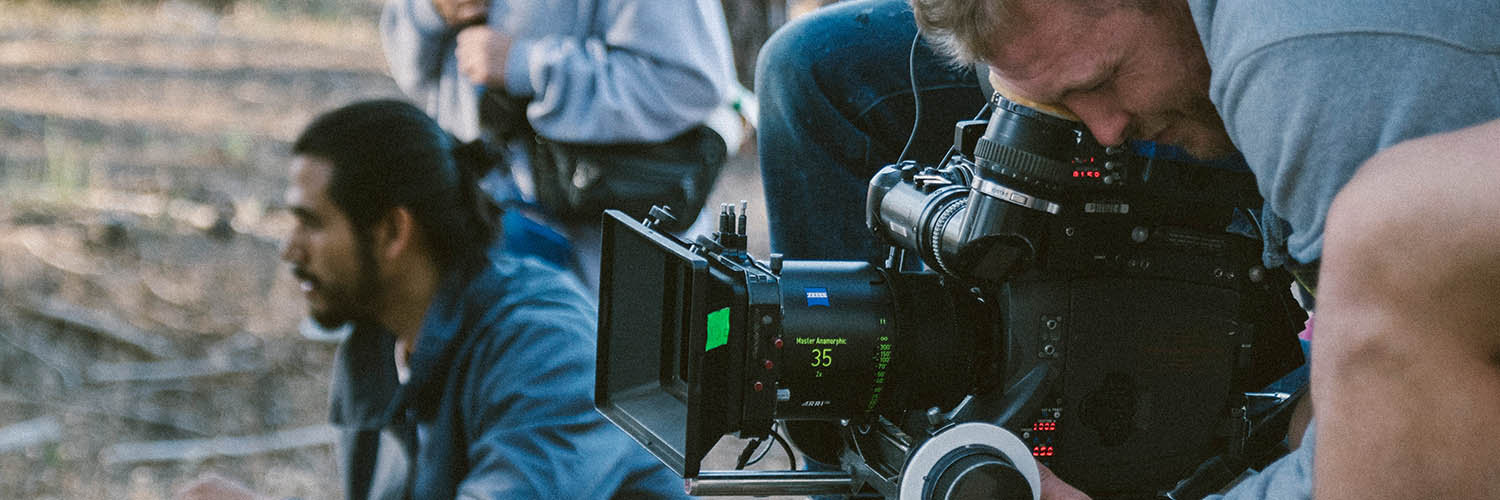
DP Fabian Vettiger behind the camera (Photographer: Paris Brummer)
Aadil: It was hell on the focus puller. When we shifted to the handheld stuff and our heroin goes into a more natural state, even though she’s in a state of chaos, Khalid is running next to Fabian without a monitor, just gauging distances by eye, and going on gut feel.
Nic: That’s wild.
Fabian: Our focus puller, Khalied Manuel, was incredible and pulled everything by eye. The guys were amazing considering we were on a shoestring. Leon our clapper loader, Clint our gaffer, and Siseko our grip, everyone.
Aadil: It really looks great. I wanted the lighting and look to create a sense of claustrophobia inside the cabin and for the outside to feel like a warm escape. Playing with contrast and juxtaposition, for the film to look romantic but moody, and beautiful but dark, etc.
Fabian: Yeah so we used a lot of blue and cold tones inside with fluorescents and blue gels, and then we let the warm tones take over more for the exterior scenes. The film was shot on a 4perf Arri Studiocam Package with Arri Master Anamorphics. I shot the exteriors on 5207 daylight stock to balance the highlights & shadows. For interiors, I chose 5219 tungsten to see deeper into the blacks. I used low key lighting in the interiors making use of negative space. And I underexposed most of the interiors by a stop, knowing that the dynamic range of 35mm would hold up, and it did.
Nic: I have no idea what that means, but it must have been nice to just have that freedom creatively. To be there in the moment and…
Aadil: Yes, it was both nice but at the same time extremely scary, because at the end of the day if anything goes wrong or it doesn’t work it’s entirely your fault.
Nic: It’s all on you.
Aadil: Which is actually great for me, because I didn’t go to film school and I’d never really worked that way, you know? When I got into directing I went almost straight into commercials and so there was never that space of just exploring your voice in a free way, doing music videos and short films.
Nic: Yes, sometimes you just don’t want to think too much about the actual creation process really. Whenever I do that I get bogged down and I don’t get anywhere. If I switch that voice off I can make stuff, but if it’s running next to me, I’m paralysed by it.
Fabian: There’s the value in playing.
Nic: Yes exactly, in the commercial world you don’t often get to speak in your voice.
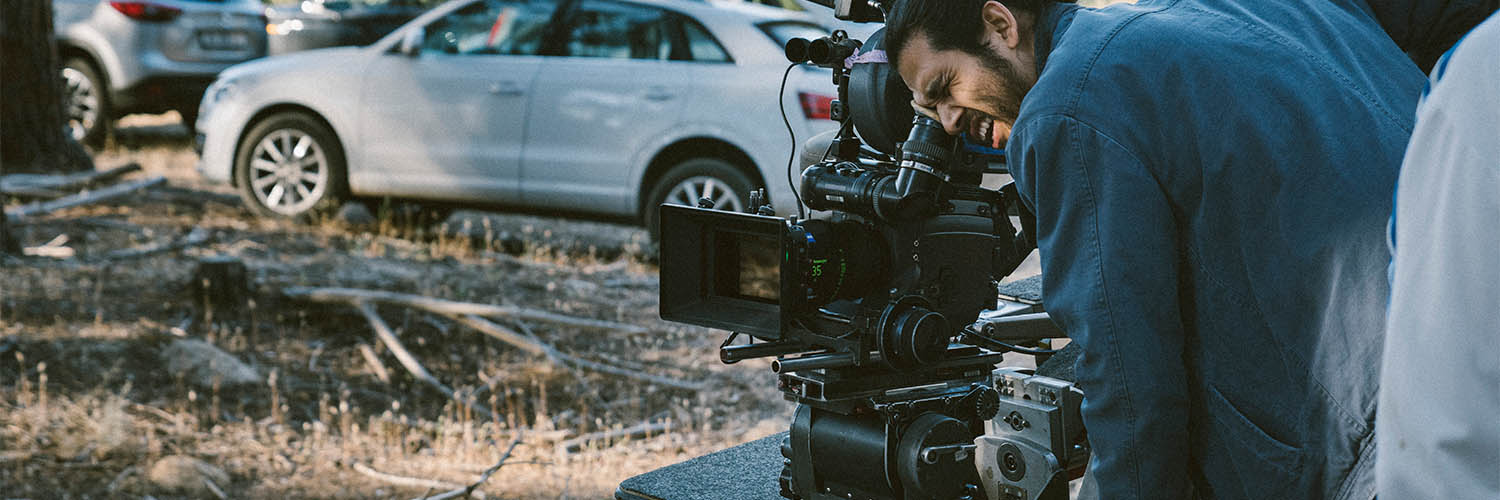
Director Aadil Dhalech checking the shot (Photographer: Paris Brummer)
Aadil: I think shooting on film the way we did added to that. We had an idea of how something might work, but you don’t know until you see it. Shooting with no playback and no real monitor to look at, you’re playing in the sense that you’re working off instinct. You’re going, that felt right, we should probably go with that.
Nic: This is probably going to work.
Aadil: It’s probably going to work, if it doesn’t, let’s try that.
Nic: Yes. So would you do it again?
Aadil: Shoot on film? I think so, I think what it taught me was to be less reliant on playback and the screen, and to be more trusting of my instincts after seeing the performance from the point of view of the DP. I think often what happens is you’re sitting off to one side with your screen and you’re not really watching what’s happening. With this, I was next to Fabian the whole time. You run the performance and you can feel what feels good. For the first few takes it was petrifying because I was thinking, “I can’t remember what you did, I can’t watch playback, let’s just do it again.” But as we got going I became more at ease with what felt right.
Nic: It’s got to be about that gut feeling man.
Aadil: Ja, we don’t often get to explore in such a free way in the commercials world. And I think through exploring there’s a different access to your abilities, you learn to go, “Cool, I think this is going to work.” Whereas if you’re just answering briefs, you become confident in the ability to answer a brief as opposed to knowing what the actual best way might be. I just think sometimes you can get really good at cracking briefs, but exploring your own voice and your own creativity on the side just allows you to have a better understanding of what your perspective is, what your style is and I think that will feed into answering those briefs better.
Nic: I can relate. I’ve always had a passion project on the go, like Ex Olympic which is what I’m doing now. I very much need that and it lives in a completely different world for me. It’s important that it’s separated from my work because it’s what fuels my voice I suppose. It’s what gives me a sense of artistic intention. It’s the playtime that makes you capable of bringing something new to the table.
Fabian: For me, the creative reward with this kind of stuff is often just greater. The boundaries are generally unlimited when you do a personal project. You can push your medium in ways that you usually might not be able to on commercial projects. It’s important for me to be reminded of why I got into filmmaking in the first place, like the love of applying the craft of cinematography to a great story. On projects like these you feel you grow and you push your creative ideas and techniques further.
Aadil: And at the end of the day people want a point of view. From creators, musicians, and directors, they want a point of view, otherwise why hire one?
Nic: Absolutely.
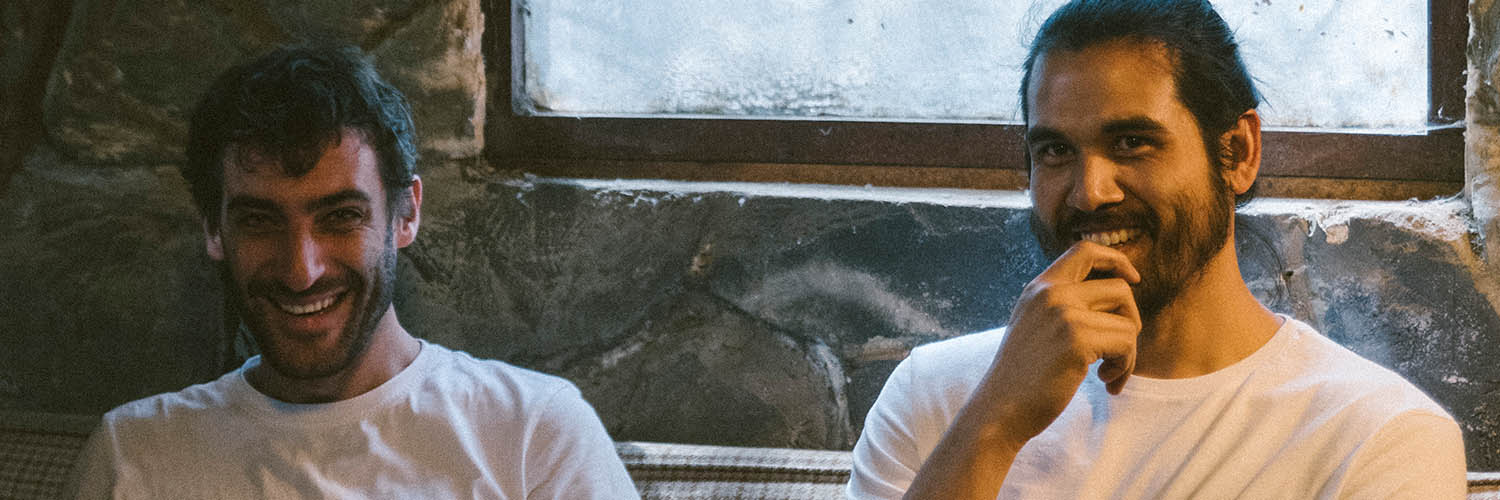
Nic and Aadil on set (Photographer: Paris Brummer)
Credits
Directed and written by Aadil Dhalech
Ex Olympic is musician and sound engineer Nic van Reenen
DP: Fabian Vettiger
Colourist: Terry Simpson
Edit: Stephen Du Plessis at 2+3 Post
Online: Blake Prinsloo at 2+3 Post
Produced by: Deenan Naidoo & Zayd Halim
Production Design: Kezia Eales
Hair & Make up: Amy Louis
Wardrobe: Gabi Alberts
Her: Francesca Varrie Michel
Him: Dylan Edy
Film stock: Kodak 5207 Daylight, Kodak 5219 Tungsten
Film Processing & Scan: Cinelab London
Camera & Gear: Panavision Cape Town

Contact Patriot Films
View Patriots Profile on IDIDTHAT
Executive Producer: Zayd Halim
zayd@patriotfilms.tv

